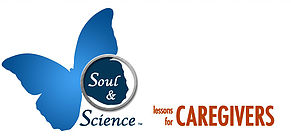VIDEOS

Published on Feb 13, 2015
When Clyde Earle checked into a hospital expecting to return home, his doctor, Kathy Selvaggi, had to deliver some bad news. Our film “Being Mortal” explores issues of death, aging, and what is important in the last days of life.
Uploaded on Feb 26, 2012
Dr. Sangwan, as being a physician, was asking a little bit strange questions from her patients: she asked them if they knew what their illness came to tell them about.
Then soon time came when she had to face the same situation herself. She had found that instead of numbing out the symptoms any further, she has the choice to go for her real aims in life, even if they are huge and scary.
In her warm, emotional and authentic talk she reports about her first adventourous steps on that scary, but authentic path – in Saudi Arabia,– and encourages us as well that we can most probably avoid getting into hospital if we take our tears, deep emotions, and inner- and outer communication as dear, and with their help we stay on the path of our real integrated self.
Published on May 25, 2015
Telling a patient they have cancer or another life-changing diagnosis is one of the most challenging aspects of being a healthcare provider.
Emily Fenton, a PA student at the University of Iowa Carver College of Medicine in Iowa City, walks us through the SPIKES protocol for delivering difficult diagnoses.
Published on Nov 18, 2014
This short animation gives five steps to help you deliver bad news. It is suitable for health and social care professionals or first responders who may have to deliver bad news as part of their job.
Animation produced by Headland & Irish Hospice Foundation
Published on Dec 19, 2014
This talk was given at a local TEDx event, produced independently of the TED Conferences. We say a lot of things when we do not know what to say. When we get that call that our daughter, mother, brother, spouse or any loved one has been confronted with the unimaginable. We spend the entire car ride to the hospital carefully and thoughtfully arranging the words that will miraculously make everything just go away. It comes from a place of love. Yet even deeper than that, Adrianne Haslet-Davis believes, it comes from a place of fear. Fear of the truth; that no matter what we say, nothing will make it better. As a survivor and amputee from the Boston Marathon Bombings, Adrianne gives us the guidebook on a topic we will all face in one way or another in our lives. This riveting talk is told through Adrianne’s own stories of recovery where she learned very quickly that even the most well-intentioned words would never make her leg grow back.
Adrianne Haslet-Davis is a Professional Ballroom Dancer and public speaker who has survived the unimaginable Boston Marathon Bombings where she lost her left leg below the knee. She now works to inspire others to fulfill their own personal dreams.
